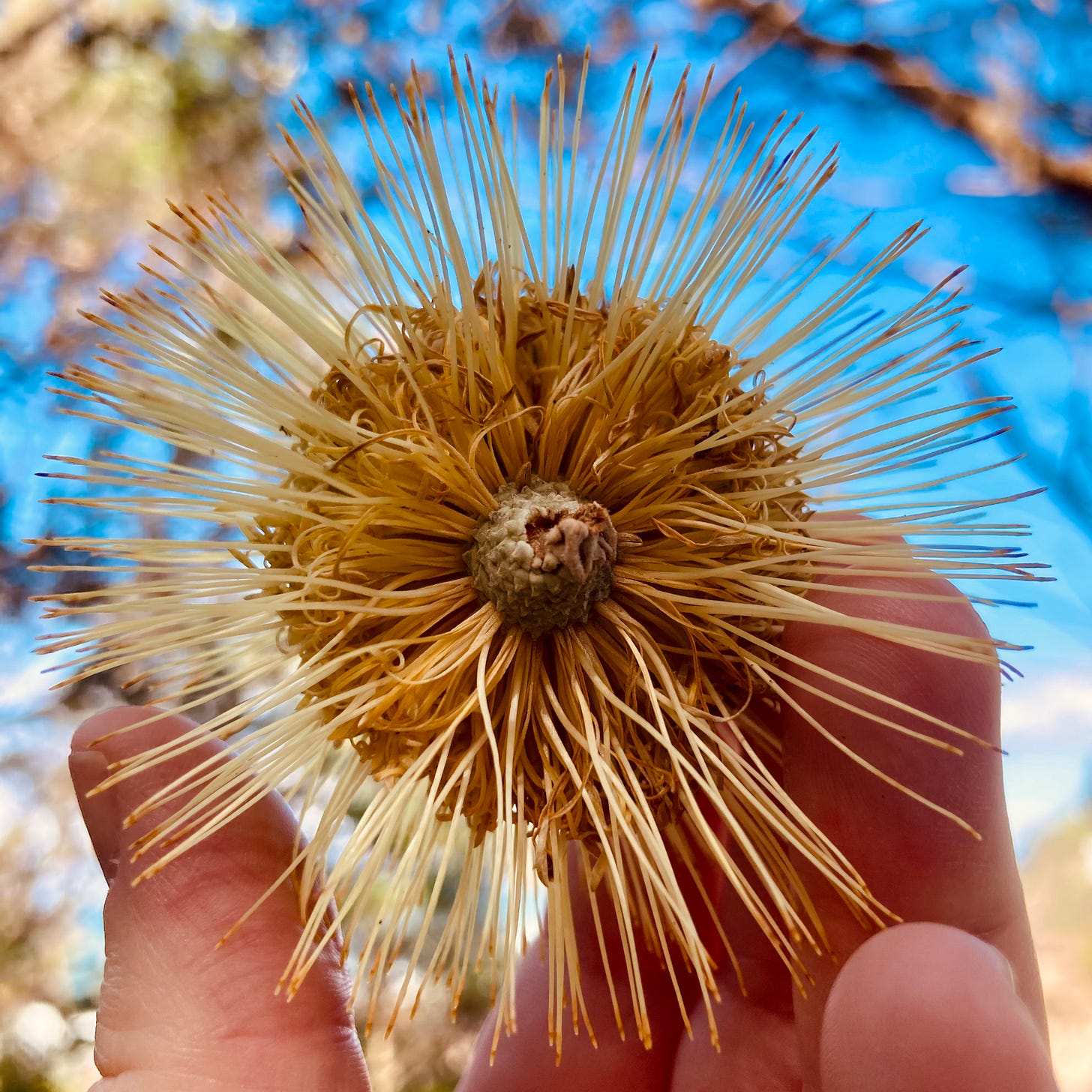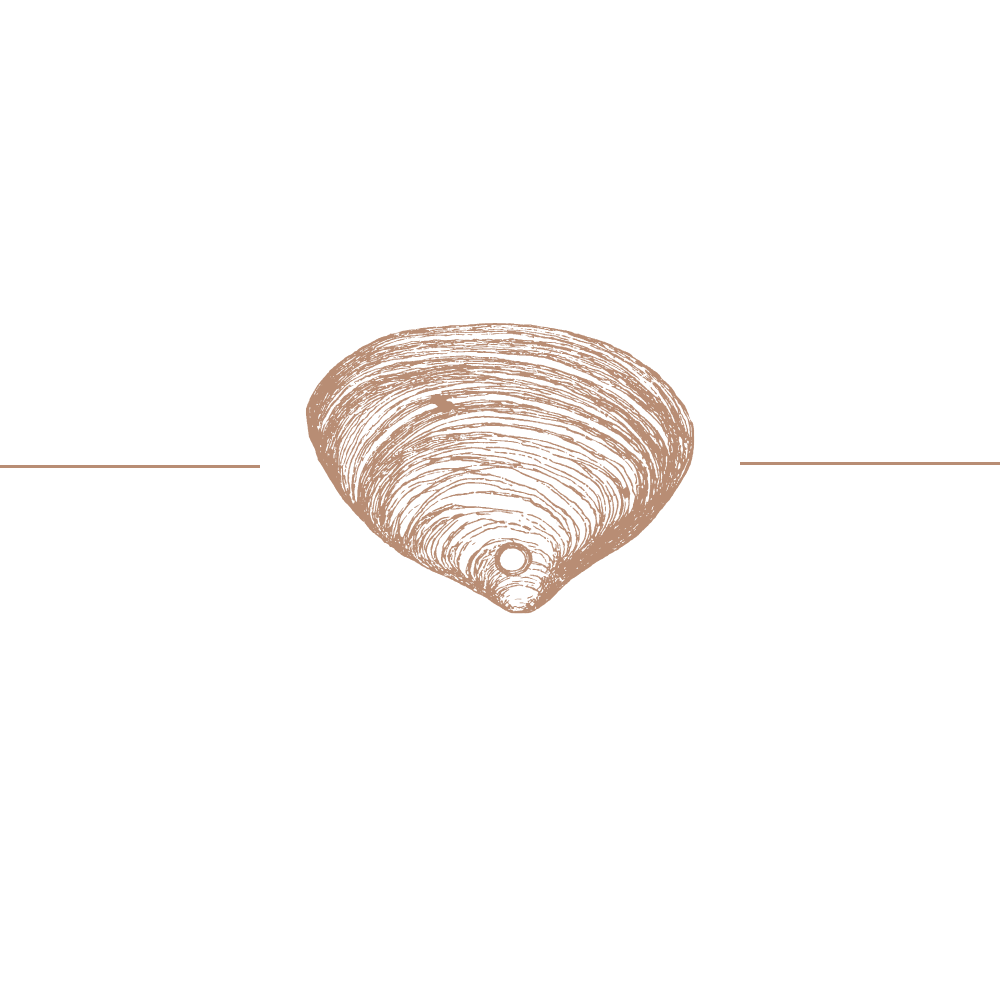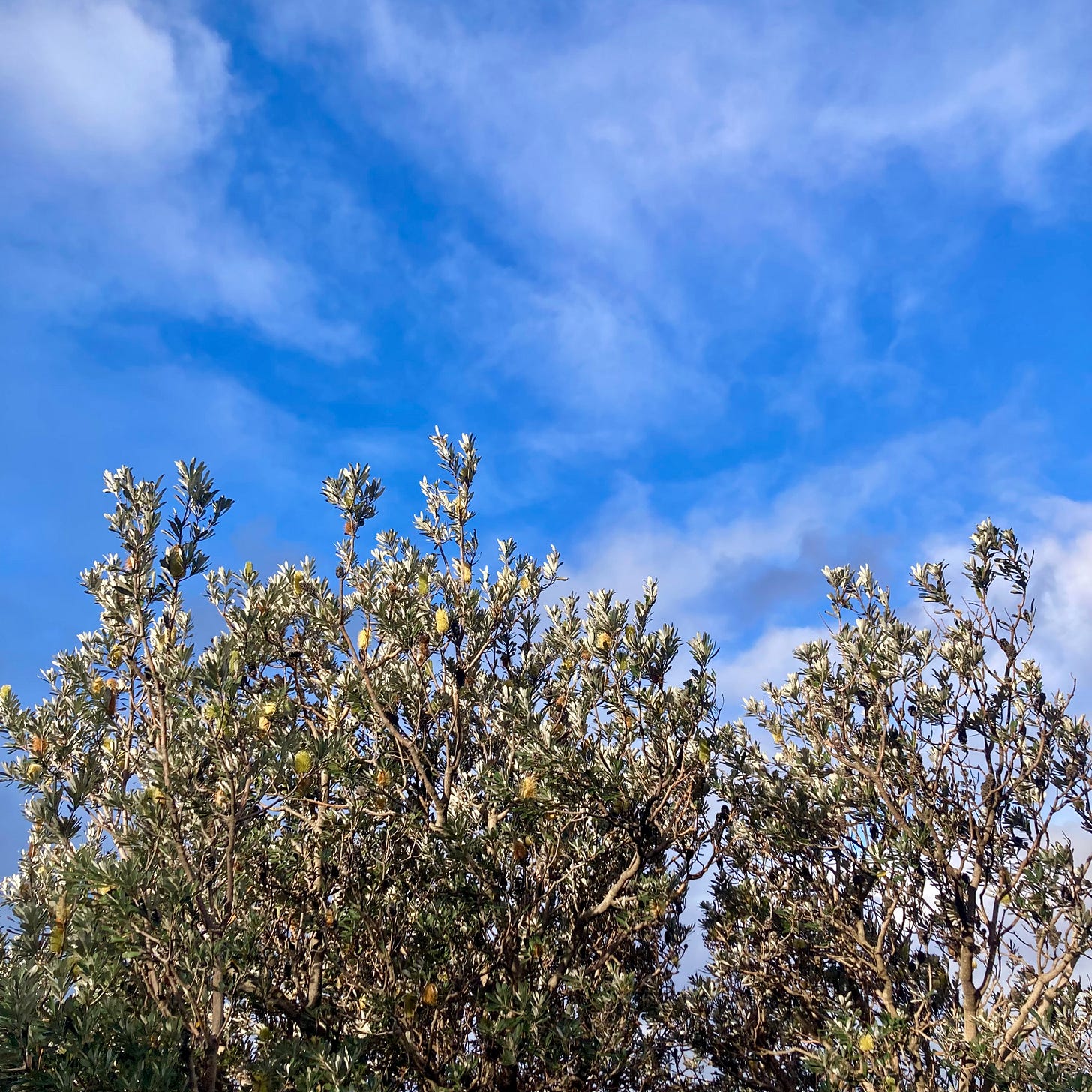Muddy Paths, Clear Minds
reflections from the undergrowth
A culmination of mild irritations and major mental turmoil rose to the top of my head, like the inner pressure you feel in your ears as a plane ascends through cumulus clouds. The fuselage shakes and hums and in a brief moment of panic you wonder whether your head might explode before you remember to equalise your ears. The whizz and rattle subsides, the plane levels and you settle and wait for the seatbelt sign to turn off.
I'd had enough of the pent-up energy and sought solace from chocolate, then nature. The sun was out after a day of rain, humidity was over 90% and although it's technically Autumn, it felt steamy. The local walkways were mercifully quiet, except for several groups of school kids on an excursion, huddled in groups, learning about nature overlooked by large day-trip coaches lined up in the nearby carpark.
Mud squelched underfoot on the first of my favourite tracks, one that gives me a bird’s-eye view of the ocean and the wild, windswept Coastal Banksia that are home to Wattle Birds and Superb Fairy Wrens. I held out hope of seeing some of the local Black Cockatoos as I unsuccessfully navigated the muddy path, my foot slipping to a depth that felt as though I may be entirely consumed.
Consumed, that's the word. My head was abuzz with entirely improbable, fictional situations. Muddy thoughts and tracks leading to nowhere. Mental meanderings infused by cyber situations and worlds of probability beyond my control. Coupled with real-life dilemmas of, you know, what to have for dinner and how can we bear more of this relentless fascist twitosphere, government ineptitude, online trolls, and the children, the thousands of beautiful children being murdered in Gaza.
Just as thoughts spiralled into some other doom scenario, I got distracted by a different kind of chatter. A small posse of wrens leapt and flew through the shrub-lined corridor that led towards the beach. As I listened, hoping to catch a glimpse, I saw a juvenile Superb Fairy Wren land beside a puddle, unaware of my presence. It jumped into the water, bathing in what looked like pure joyful abandon. Splashing and tweeting raucously as if to say, “The water’s great, come on, come in,” it hopped out, puffed and fluffed up on the water’s edge, only to dive back in again.
I felt the pressure drop, levelling out, descending back to some sort of equilibrium. I wished I could shrink, morph, grow wings and join that Wren in the water.
I walked on, the shared revelry of sunshine, water, and a gentle breeze, along with the little bathing bird, drawing me out of my mental turmoil into the present moment. I moved to a nearby lookout where the local creek meets a lagoon, forming a brackish pool surrounded by sand and reeds.
A family of uncharacteristically relaxed Masked Lapwings lined one edge, their usually territorial nature temporarily suspended in favour of afternoon naps in the sun. They looked like a row of sun-baked holidaymakers stretched out on their loungers.
A White-faced Heron tentatively stepped along the path ahead, and I stood transfixed. Its body remained perfectly still, eyes intensely focused as it searched intently, its neck moved like a dancing cobra, as if operated by separate consciousness. Suddenly and abruptly, it relinquished its stance, its prey presumably escaped. Then it took a few measured steps forward toward a new target, and the mesmerising ritual resumed. I turned to follow another path.
I wandered up a hill to a spot under the Banksias where I often find Yellow-Tailed Black Cockatoos. It seemed they had fed and moved on; the tell-tale carpet of banksia flowers strewn on the ground told me I was a day or so too late.
I sat, in a clearing in the undergrowth, beneath the trees, on a little rock perch, marvelling at the intensity of the blue sky, and the pale grey-green underside of the banksia leaves, and the perfect cylindrical brush-like burnt butter yellow of the flowers. I marvelled at the resilience of these trees, their species enduring for over 40 million years. Basking in sunshine on my rocky overlook, I surrendered to a dual awareness: a sense of complete insignificance in the vastness of nature and countless millennia of human non-existence, and total reverence for the beauty of the trees, the rocks, and the birds around me.
I'm no stranger to these juxtaposed, jumbled feelings; this is precisely why I go to nature. Not for some profound and miraculous healing, the sudden absence of suffering. It's the calibration, recalibration, almost. The way that nature compels you to notice, to stop, if just for a moment, to understand your impermanence and simultaneously woo you with its beauty. It is awe-inspiring, so overwhelming at times as to be almost incomprehensible. How can such beauty exist? How can our minds comprehend it?
I checked my phone on that idyllic rocky outcrop, turning from the vast and spectacular to a tiny screen. A perfect moment of contemplation, interrupted by compulsion, a need for distraction from my own thoughts, my discomfort creeping back in as the landscape settled and no creatures remained to observe. I still felt a pang of dis-ease. The paradox of this sublime beauty and the horror of the world. The callousness, the cruelty, the indifference in the face of deep, irreparable suffering.
Nature is far from an escape. It doesn’t erase pain; if anything, it brings it into sharper focus. But it offers pause. Perspective. A way to reframe. It’s a reassuring hand on your back, saying nothing. No advice. No resolve. Just a wordless reminder that your pain is not yours alone.
Thích Nhất Hạnh said, “If a lotus is to grow, it needs to be rooted in the mud. Compassion is born from understanding suffering. No mud, no lotus.”
Nature teaches us the duality of pain and beauty, the cycles of birth, death, renewal, suffering, and resilience. It shows us that we must face the pain, not scroll past it. To put down the phone (yes, even mine) and sit with discomfort.
It reveals everything, if we’re willing to pay attention. And it does so with the quiet equanimity of a mindfulness teacher, dispassionate, yet deeply compassionate. Always present. Even when I’m not.
There are no words for this kinship, only a sense of something primal, unspoken. A knowing that lives beneath language. Something we’ve forgotten in our modern world that places humans at the centre. Yet it’s there. Unconditional. Innate. True.








So gorgeous, like a deep breath of clean air. Thank you!
War wickedness woes,
and wee wrens in water wows!
We wish, walk, grow wings.
...
White-faced Heron awe,
wander, let ourselves be wooed.
Pain pause, perspective.